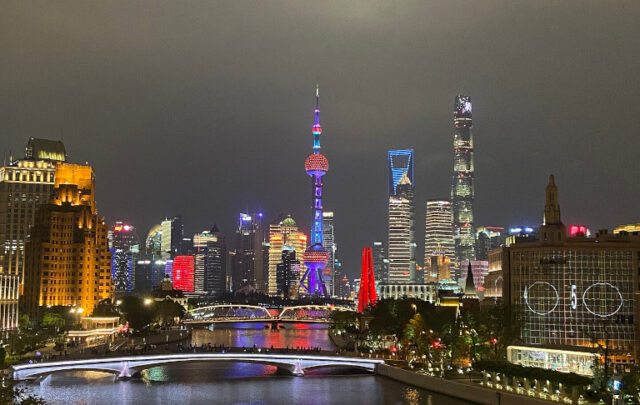BEIJING, Oct 30 (IPS) – China may not have a flamboyant oil tycoon like Russia’s Yukos ex-boss Mikhail Khodorkovsky but Beijing is embroiled in a similar, albeit smaller, court battle over oil and money as the Kremlin.
After a brief flirt with private investment in the oil sector, Beijing has started cracking down on independent players in the field. In one of the most flagrant examples, the government has ordered the seizure of thousands of private oil wells in northwest China as part of an environmental clean up and overhaul of the industry.
But in an unforeseen legal twist, the people who invested in the wells — thousands of private entrepreneurs from China’s heartlands — are preparing to sue the government over the forceful seizures. They claim the wells are worth an estimated 7 billion yuan (845 million U.S. dollars) and cover an area spread over 15 counties in Shaanxi province.
”The Shaanxi experiment was never officially publicised but these wells had been making a lot of money and we took it as a sign that some moderate privatisation in the sector would be allowed,” says one foreign oil executive.
This class action lawsuit could well become the biggest such case ever brought against the state, according to legal experts. It has generated such attention in Chinese academic circles that an online forum for debate has been set up, while an independent website (www.sbmysyw.com) offers a cache of documents on the progress of the case.
Legal expert Jiang Ping thinks the case illustrates the perils of running a private enterprise in China where the constitution offers little security against administrative misconduct. Despite recent legal reforms, which strengthened the constitutional protection for private property, many private companies in China face an uphill battle in obtaining legal redress if there is an infringement on their interests.
Since the beginning of the seizure of the oil wells last year, violent clashes have flared between local police and the entrepreneurs. Over the past few months, the investors’ websites have also been repeatedly shut down.
Insiders say the top leadership’s escalating qualms over the current tight energy situation have added to the investors’ woes. Both President Hu Jintao and Premier Wen Jiabao have made clear they place great importance on ensuring reliable energy supplies.
Strong demand for energy from the Chinese economy contributed to the run-up in world oil prices earlier this year. Latest forecasts from the State Reform and Development Commission say China would continue to face prolonged power shortages this winter.
Shaanxi’s small re-nationalisation mirrors a much bigger battle fought in neighbouring Russia by the Kremlin to regain a state foothold also in strategic oil reserves. The yearlong legal onslaught on Russian oil giant Yukos has enlightened Beijing on the political and economic hazards of divesting energy resources from the state.
Yukos produces about 2 percent of the world’s oil and its court troubles have raised fears of supply interruptions that have contributed to record-high world oil prices. Being on the receiving end of Yukos oil shipments, Beijing had a taste of what energy disruption could mean when the company threatened last month to suspend China-bound shipments because of its cash crunch.
Unlike Russia, which began privatising the oil industry in 1992, China has never formally allowed private players in its oil production sector. But for a short period in mid- and late -1990s, Beijing tolerated the Shaanxi experiment because it became a cash cow for local governments and provided a livelihood for thousands in one of China’s most backward inland areas.
Oil reserves in Yulin and Yanan prefectures are among China’s oldest proven oil resources. But because of the rugged terrain and high exploration costs, not enough was done to develop the deposits.
In 1994, the State Council signed an agreement giving exploration rights of the Shaanxi oil fields, then held by one of China’s state oil giants, the China National Petroleum Corporation, to the localities.
With little in their coffers to undertake the exploration of the wells themselves, local officials lured thousands of private investors with promises of high returns. Joint oil and drilling partnerships were formed and money and oil began flowing in.
By website accounts, nearly 100,000 people rushed to invest. Investments ranged between a few thousand to few hundred thousand yuan.
According to Zhu Jiuhu, the lawyer representing the investors, some 10,000 plaintiffs are going to court to claim their oil wells back. The case would be filed in the coming month at the Shaanxi Provincial Supreme People’s Court.
While the Shaanxi experiment was never elevated into state policy, plaintiffs say private oil investment in the area received the blessing of top leaders like former premier Li Peng. State leaders saw the loosening of state control of oil in the region as a way of giving the local economy a boost.
The wells were drilled in an area famous for the battles Mao Zedong’s communist guerrillas fought both with the Nationalists and Japanese. Nowadays, however, villagers living in abject poverty populate the area.
Between 1994 and 2003, private oil enterprises generated thousands of yuan in local taxes. But their unregulated practices were also blamed for creating environmental pollution and mass wastage.
But administrative measures were not taken until last year.
By then, with central government authorisation, local officials began seizing the wells. Zhu Jiuhu, the lawyer, says that while the authorities later agreed to pay some compensation, they used below-market prices and undervalued the oil reserves.
”We are not going to fight for better compensation,” Zhu tells IPS. ”The investors (just) want their wells back.”





